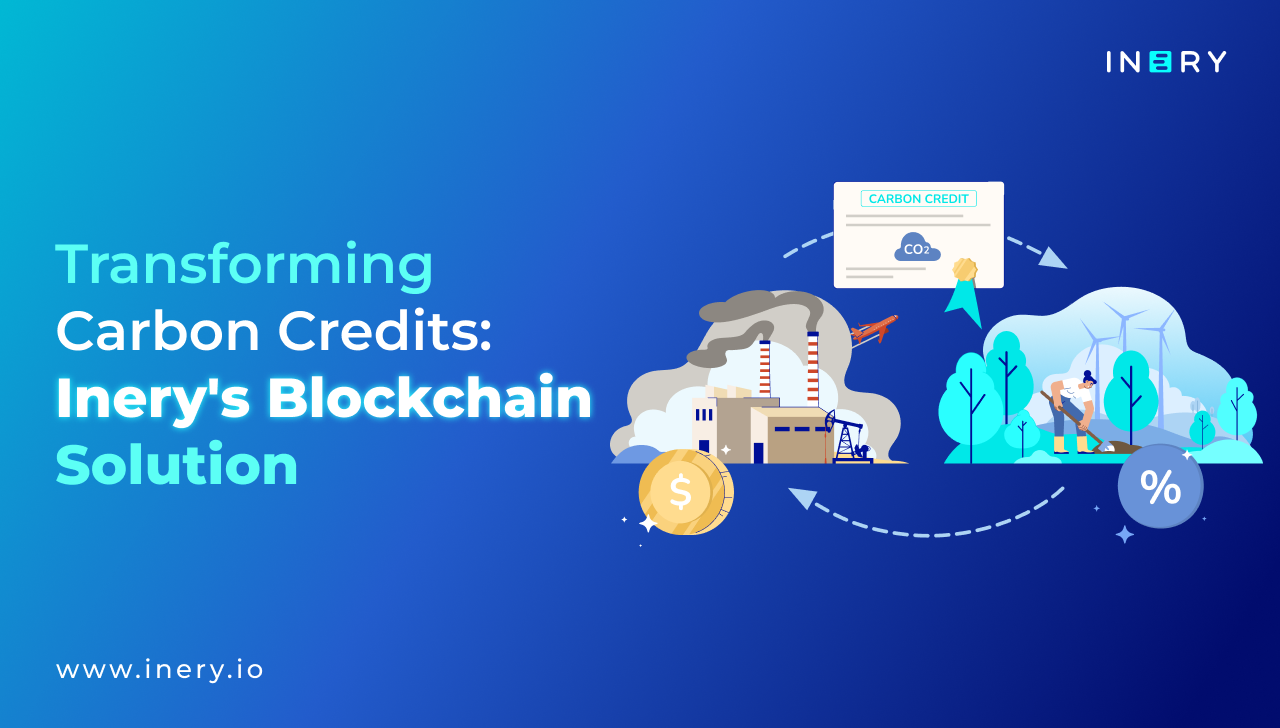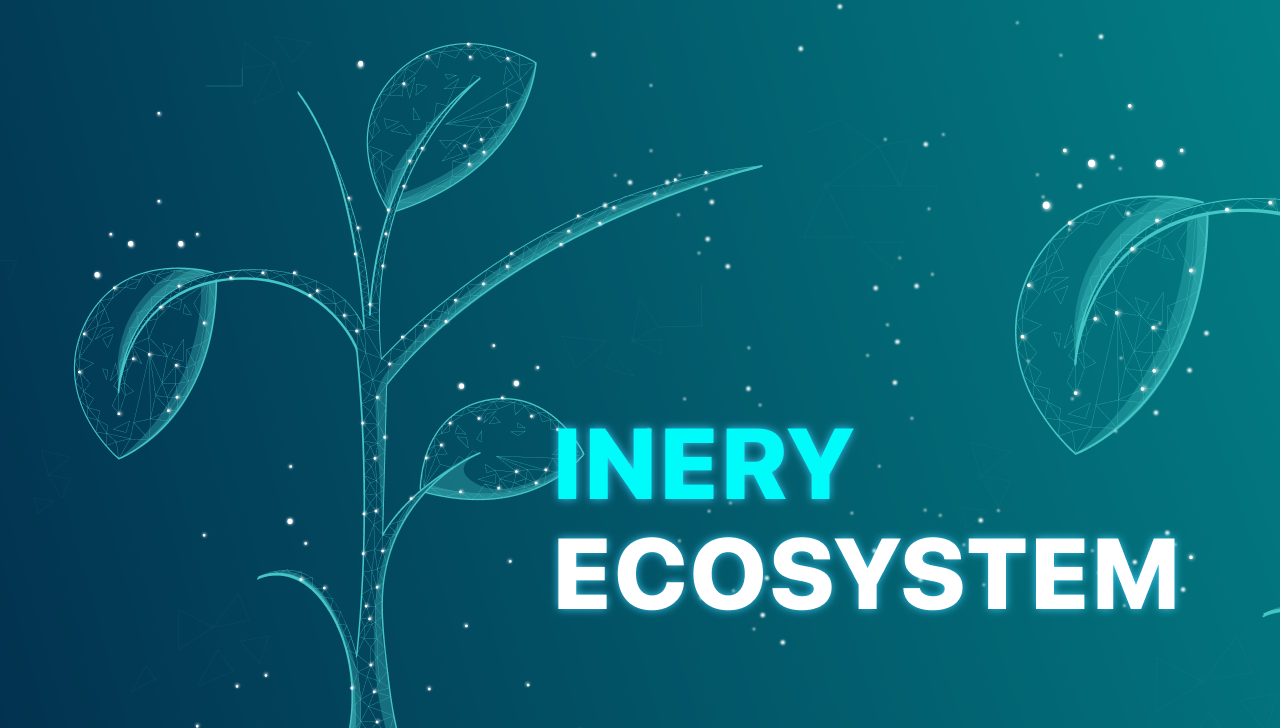Pioneered by Satoshi Nakamoto, blockchain technology initially revolutionized digital currencies like Bitcoin before extending its influence into various sectors, including environmental sustainability. With its fundamental principles of decentralization, transparency, immutability, and security, blockchain offers an ideal framework for securely and transparently managing complex data.
Recognizing this potential, Dr. Naveen Singh and Ivan Vujic, founders of Inery, envisioned harnessing blockchain for innovative database management solutions.
Inery's adaptable technology finds utility across diverse industries, with notable applications including facilitating the trade of carbon credits; a market mechanism designed to reduce greenhouse gas emissions.
Understanding Carbon Credits Trading
Carbon credits trading is a system where emission reductions are quantified and traded as credits. Companies or countries that exceed their carbon emission quotas can purchase credits from those who emit less, creating a financial incentive for reducing carbon footprints.
However, the system's efficacy depends on accurate tracking, verification, and transfer of carbon credits, areas where blockchain can play a transformative role.
The Challenges of Carbon Credit Trading
Carbon credit trading aims to reduce emissions through a market-driven approach but faces critical challenges that impact its effectiveness, primarily due to the conventional systems in place.
Imagine Company A earns carbon credits through renewable energy projects and sells them to Company B, a manufacturer needing to offset its emissions. This process involves verification, sale negotiation, and credit transfer, facing obstacles such as the lack of transparency in verifying the authenticity and legitimacy of credits has led to market mistrust.
Additionally, the absence of a unified tracking system increases the risk of double counting, where credits may be claimed or sold multiple times. The involvement of brokers and regulatory bodies in transactions contributes to high transaction costs and complexity.
Moreover, inefficient and time-consuming processes result in delays in the transfer of credits and the realization of environmental benefits.
Limitations of Traditional Systems
Conventional systems, with centralized databases and manual verification, lack the transparency, efficiency, and security blockchain offers. They are more susceptible to errors, fraud, and inefficiencies, with a reliance on intermediaries that increase costs and complexity.
Blockchain technology provides a necessary evolution for carbon credit trading, offering a secure, transparent, and efficient framework that traditional systems cannot match, making it a pivotal tool in enhancing the reliability and effectiveness of carbon trading mechanisms.
The Potential of Inery in Carbon Credits Trading
Inery, a decentralized database management system built on blockchain technology, presents a groundbreaking solution to the challenges faced by the carbon credits market. By leveraging the inherent properties of blockchain, Inery offers a platform where carbon credit transactions can be recorded, verified, and transferred securely and transparently.
Transparency and Traceability
Inery’s blockchain infrastructure ensures that every transaction is recorded on a public ledger, accessible to all market participants. This transparency helps build trust in the system, as every credit's origin, ownership, and use can be traced back through the blockchain, ensuring credits are not double-counted or fraudulently claimed.
Security and Data Integrity
The decentralized nature of blockchain means there's no central point of failure, making the system resilient against hacks and data breaches. Inery’s use of advanced encryption techniques further secures data, ensuring that sensitive information related to carbon credits remains tamper-proof.
Efficiency and Cost Reduction
Traditional carbon trading systems often involve intermediaries, leading to increased costs and potential delays. Inery can streamline this process, enabling direct peer-to-peer transactions that reduce the need for intermediaries, thereby lowering transaction costs and increasing operational efficiency.
Smart Contracts for Automated Compliance
Inery can use self-executing contracts with the terms directly written into code to automate the carbon credits trading process. These contracts can automatically verify if a party has met its emission reduction targets and then execute the transfer of credits accordingly, simplifying compliance and reducing the potential for disputes.
Real-world Application and Impact
Implementing Inery's blockchain technology in carbon credits trading could revolutionize how companies and countries approach carbon offsetting. For instance, a renewable energy project could instantly issue carbon credits upon verification of its emission reductions. These credits could then be securely sold and transferred to an industrial company looking to offset its carbon emissions, all within the Inery platform.
Moreover, the detailed and immutable record of transactions provided by Inery's blockchain could support regulatory bodies in monitoring compliance with carbon emission standards, contributing to global efforts against climate change.
Conclusion
Inery's potential use case in carbon credits trading exemplifies how blockchain technology can address some of the most pressing challenges in environmental sustainability. By ensuring the integrity, transparency, and efficiency of carbon credit transactions, Inery stands to not only transform the carbon market but also to contribute significantly to the global fight against climate change.
As the world increasingly seeks solutions for environmental preservation, blockchain technology, exemplified by platforms like Inery, offers a promising path forward.

Inery•
2 years ago
Companies Are Profiting Off Of Your Data - What Can You Do?
Your personal information is part of a profitable data market. Click here to see why this is dangerous and what you can do about it. ...READ MORE

Share

Inery•
2 years ago
The Priceless You: Uncovering the Untold Value of Personal Data
Uncover the hidden value of your personal data in the digital realm, where tech giants thrive on your information. ...READ MORE
-1700735858.png)
Share

Inery•
9 months ago
The Unspoken War Between IT Teams and Databases
Every IT team has been there. Code is ready, deployment is near, then the database decides otherwise. Queries lag, permissions clash, and the blame game begins. Why do databases make life so difficult, and can Inery finally end the cycle? ...READ MORE

Share

Inery•
1 year ago
Data Breaches Are Only Getting Bigger - What Can You Do?
Discover how Inery's blockchain-based, decentralized database management system defends against sophisticated data breaches, securing a safer digital future. ...READ MORE

Share
Most popular today



